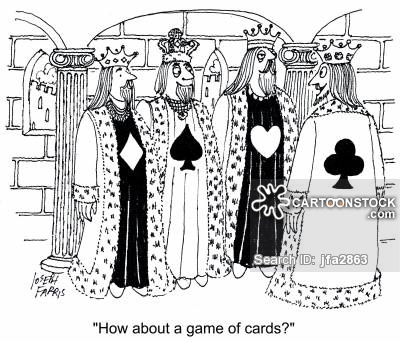St. Petersburg Times – 20 Jun 1937
Some years ago one of our leading players doubled a defensive grand slam bid, took the first trick, and still retained the Ace of trumps. However, the declarer made his contract! In those days the revoke penalty was two tricks, but applied to the tricks taken either before or after the revoke. At some stage of the play the expert revoked, whereupon, the declarer took the trick already won plus the trick made later with the Ace of trumps, and made his contract.
The above is one of many cases where an offender is fortunate to profit by his own breach of the rules. The game was duplicate, and at every table South, who held:
![]() Axx
Axx
![]() AKJ10xx
AKJ10xx
![]() AKx
AKx
![]()
became declarer at a four heart contract. Dummy had a blank hand with no hearts at all. However, in every table but one the contract was made, since East held the Queen and one heart and West four small. The one failure occurred when South tried to put something over in accordance with the rules but not in accordance with the spirit of the game.
After ruffing the opening lead of clubs, this declarer promptly banged down the Ace of hearts and followed immediately with the King of diamonds. As he had expected, West thought the King of diamonds was the King of hearts, and played a low heart. East, however, noticed that a diamond had been played and asked, «No hearts, partner?»
West replied, «I have revoked.» While the revoke was not established, declarer had the privilege of forcing the small heart to remain as an exposed card.
He now led the Jack of hearts: hoping that West had originally held three to the Queen. As it was, East made his unguarded Queen and set the hand. West had profited by his inadvertence, but we must say that in this particular instance we were very glad to see the declarer, who had tried to put over a fast one, get fixed.
In many cases when people are playing a very lax game, the declarer will play either from his own hand or from dummy ahead of time. Theoretically, he can obtain no advantage from this, since when he plays out of turn from either hand, either opponent may play his card first. Recently, however, we saw a man gain a trick in a very innocent manner by doing this. South was declarer at a diamond contract, and West was in the lead after a few cards had been played.
Dummy held a ‘singleton club and plenty of trumps. West, with the King-Queen of clubs, led the Queen, since he wanted his partner with the Ace to take the trick and give him a ruff in another suit. Declarer, who had no high clubs in ‘either hand and was hurrying things up, played a singleton club from dummy and a low club from his own hand practically simultaneously; whereupon East saw no good reason to overtake his partner’s Queen and ducked, thereby losing the opportunity to let his partner make his small trump. Of course, if declarer had not played out of turn, East would have been afraid that declarer held the King, and would have put the Ace right up and obtained the lead.
While on the subject of penalties, we happen to know one particular player whose mind is apt to wander far afield from the game. We remember one time when he was dummy and got up and strode out of the room. The hand was soon finished and when he failed to return, the players went to look for him. He could not be found, and next day it developed that he forgot he was in a bridge game and had simply walked out and gone home.
The same player also once completed a deal, picked up his hand, sorted it carefully and after mature deliberation, placed the deuce of spades face up on the table. Some one said, «What’s that for?» Our friend replied, «I’m leading» It finally developed that he had a very poor hand and was convinced that the opponents would bid a game, probably in notrump. Having come to this conclusion he next assumed that they had bid the game and it was his lead. His last thoughts were on what to open, and the deuce of spades seemed best to him.
This particular player is also very lucky. For instance, in a recent game his opponents reached a five-diamond contract. His partner opened the King of hearts. Dummy went down with three hearts, to the Queen, and our hero, with the deuce and four of hearts in his hand, promptly played the deuce.
In spite of this discouraging card, his partner continued with the Ace, and followed with another heart, having nothing better to do. Thereupon, our absent-minded friend trumped with a low diamond and set the contract. The trick was gathered in and now there was a long pause, during which he made no effort to lead. Finally his partner said, «It’s your lead, you know.» He looked startled. Finally, after much conversation he was convinced that the contract was five diamonds and not the three notrump he had thought. Fortunately he had been lucky enough to discard a trump.
